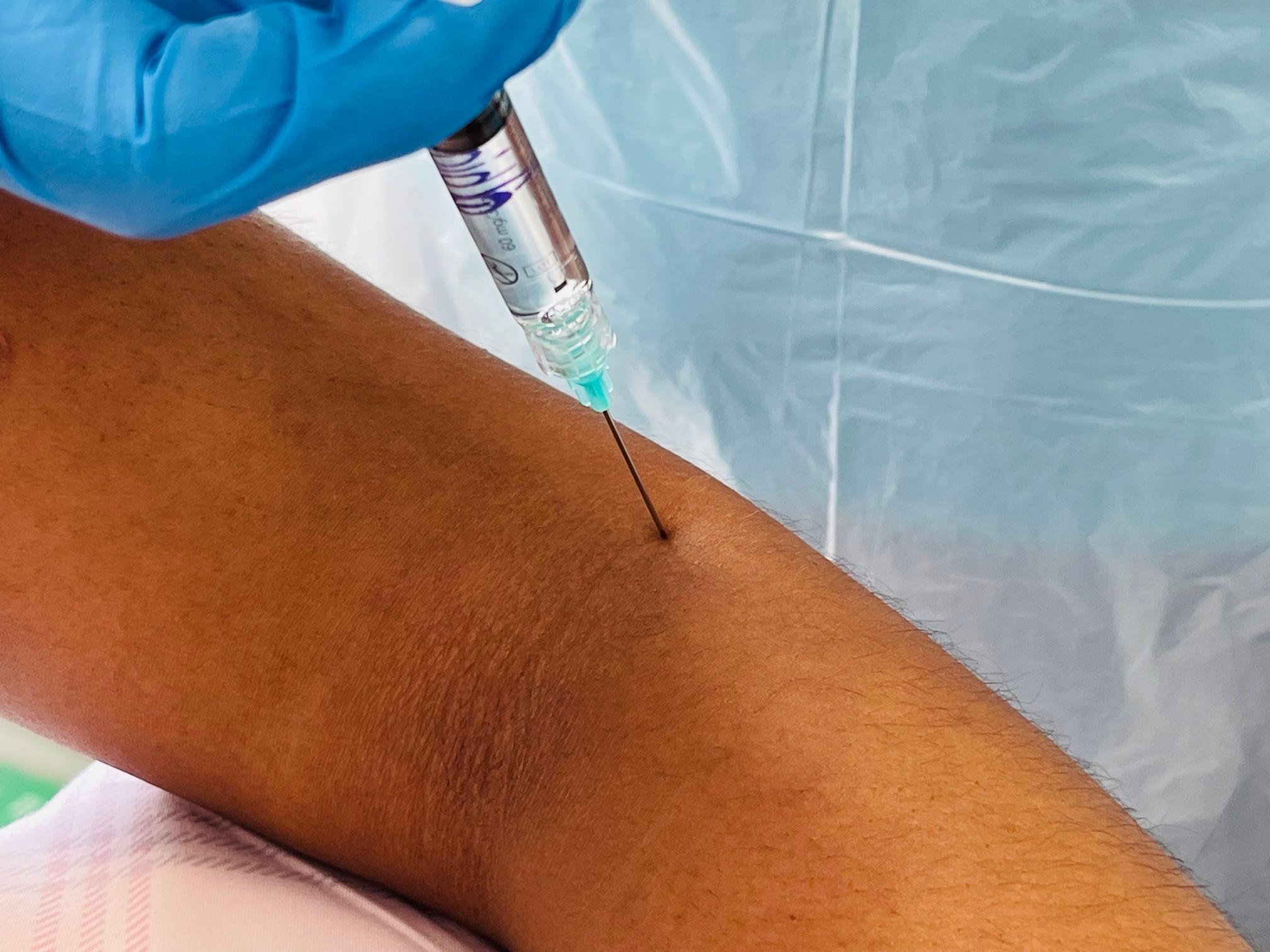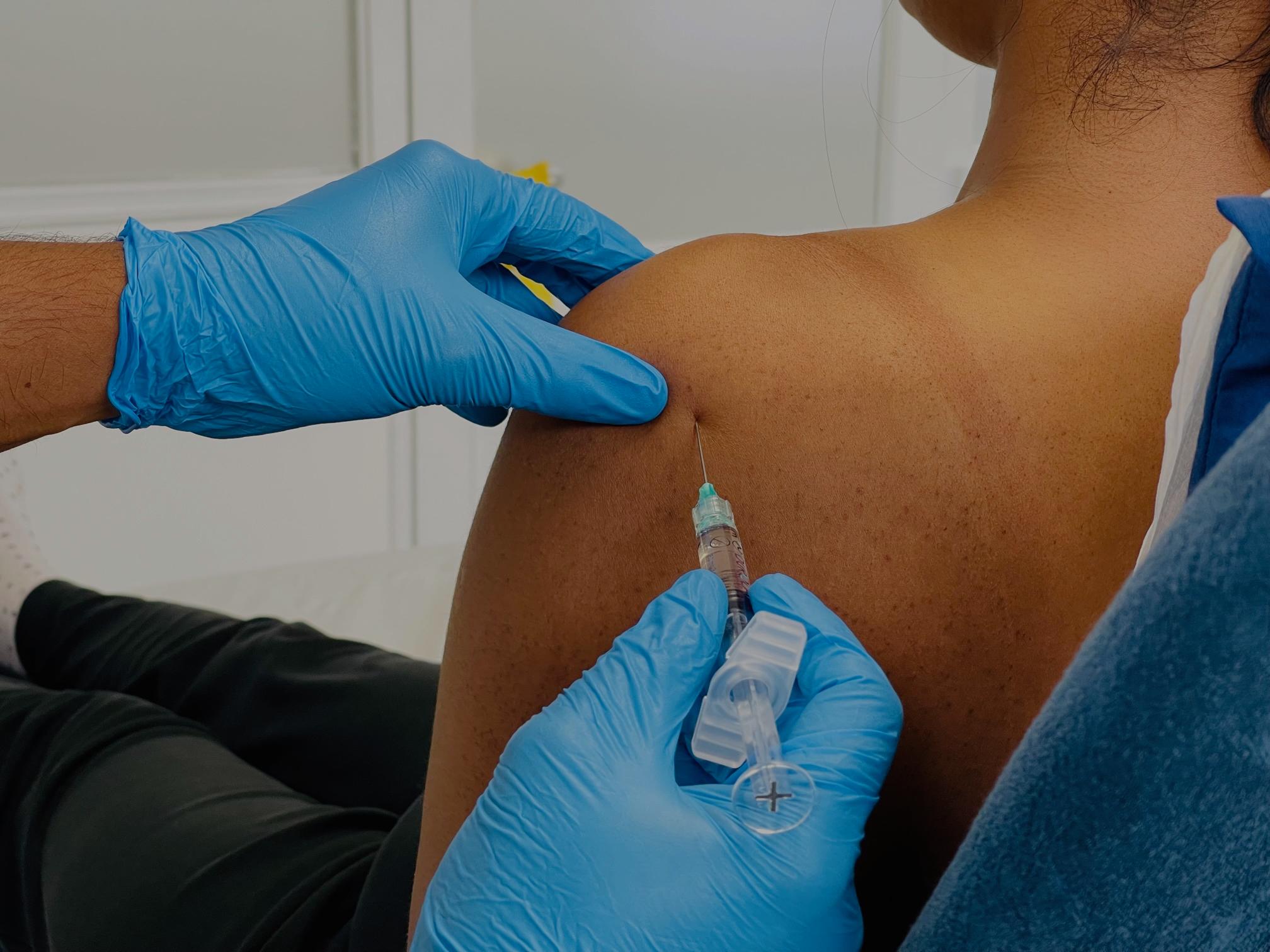If you are living with Joint Pain, then Chester’s Best Clinic for Injection Therapy has the answer for you.
If you have had to compromise on the things that you love doing, such as walking, running, playing your favourite sport or playing with the children in your family because Joint Pain won’t let you do them, then Injection Therapy might be the answer.
Our Qualified Ultrasound Guided Injection Therapist, Raj Gandhi can offer you 2 types of injections to help you with your Joint Pain :
Click on the type of injection you are interested in to learn more about it and how it might benefit you.
Over the past 20+ years, in his role as an Injection Therapist and Expert Physiotherapist, Raj has helped thousands of people recover and significantly improve their quality of life, as well as return to doing activities that they thought were gone forever.

Is Injection Therapy for you? If you can answer ‘YES’ to any of these statements, then we would say that it is!
Injection Therapy can greatly relieve your pain in as little as 48 hours, and depending on the type of Therapy that you have, the positive effects can last well over 6 months.
All of our Injections are done with the benefit of Ultrasound Guidance, meaning that there are more benefits for you :


1. Delivering Pain Relief – if you are in Pain, it will affect every single aspect of your life. Some conditions can be treated using Injection Therapy and the relief that the Injection Therapy provides can be life changing. By targeting the problem directly, we can help reduce inflammation, swelling, stiffness and pain.
2. Treatment for Osteoarthritis – often this condition stops you from leading you life as you want and reduces your mobility. Injection Therapy using Durolane can target the painful joints and improve your mobility. You will see the difference as you will be able to do things you didn’t think you could!
3. Speeding up Recovery – some soft tissue injuries can slow you down and make doing those things that you took for granted really hard. These targeted injections will relieve pain and restore functionality. The pinpoint accurate injections can help reduce swelling and inflammation, reduce the pain and support faster recovery. You will get your strength and mobility back in next to no time.
4. Combining Injections – sometimes a Steroid Injection will be enough to help with the short term pain, but if combined with a Durolane Injection, it can prolong the benefits significantly.
There are a lot of different conditions that are treated by Injection Therapy, such as:

To get in touch, please contact Chester’s Best Physiotherapy Clinic, Relive Physiotherapy and click to talk to Raj.
Request Callback
Raj Gandhi has been practicing Injection Therapy for more than 12 years, firstly in the NHS and more recently at Relive Physiotherapy. He is qualified to use Ultrasound for his Injection Therapy treatments and loves using his machine to show his clients exactly what he is doing.
He is passionate about helping the people of Chester overcome their pain and supporting them through the whole process. He will make you feel comfortable and keep you updated every step of the way, as he has proven that this gets results!
He is a full member of the Association of Chartered Physiotherapists in Orthopaedic Medicine and Injection Therapy (ACPOMIT) as well as the Chartered Society of Physiotherapists (CSP) and holding his HCPC registration.
300+ Google Reviews
